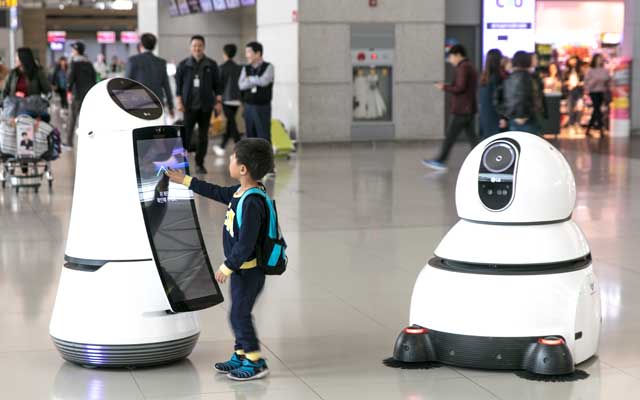Travel getting smarter with new tech
WHAT’S GOING ON
- Digital technology is creating a new era of travel, from how people book their trips, to where they stay, and how they experience it.
- Many innovations are coming to an airport nearest to you, here are just a few to give you a glimpse into your next holiday.
- Last week Manchester airport became the UK’s first 5G connected airport by Vodafone, with other travel locations set to follow in the coming weeks.
- Destygo, a French company has built a chatbot for airports that answers simple questions from passengers such as what gate a passenger’s flight is leaving from, and whether it’s delayed. The bot is currently being used by airports in Paris and Lyon.
- Dubai International airport has just announced it will soon introduce smart gates to detect traveller’s body temperature by scanning their thermal print. If the tests indicate an unwell passenger entering the country, the data will be shared with the Ministry of Health and Prevention so they can start taking care of the traveller immediately.
- Many airports, particularly in Asia, are deploying robots to improve passenger’s experience. Tokyo Airport uses friendly-looking robots to help with airport security, transportation, logistics and translations while international airports in Taiwan have robots that tell passengers their departure details and weather updates of their destinations by simply scanning boarding passes.
- And in our own home town, Brisbane and Melbourne’s airports are trialling new technology at security checks which will allow electronics and carry-on liquids to be kept in bags. This will help speed up and eliminate the hassle of taking electronics out of your bag and the ‘airport dread’ of forgetting that lotion you had at the bottom of your bag.
- Air France has just upgraded its app with new features. One includes a baggage tracking function which sends each passenger a notification of the whereabouts of their baggage throughout their trip and the number of the baggage carousel to collect their luggage from. It is also one of a number of airlines testing facial recognition at baggage drop-off points and boarding gates to speed up the airport journey.
Brisbane and Melbourne’s airports are trialing new technology at security checks which will allow electronics and carry-on liquids to be kept in bags.
GROWTH MANTRA’S PREDICTION
- The advent of self-serve check-in kiosks, digital/mobile boarding passes have already reduced the time and hassle of checking in at the airport. We expect to see more innovations that will further enhance and streamline the passenger experience. We believe we aren’t too far off from a future that will see the check-in process being completely digitised and automated – allowing us to check in just minutes before our flight instead of hours.
- Facial recognition, smart scanners, IoT and biometric technology are already being trialled in many airports around the world – we believe the trials will rapidly evolve into full adoption across many facets of the passenger journey in the next 5 years.
- More digital technology also means new data collected about passengers. This will lead to more real-time and highly personalised experiences for travellers.
- More data, however, will also raise concerns about data privacy and ethics, unlike the current concerns we have about this issue. With travellers from different countries crossing borders with different data privacy laws, this is likely to cause big questions about data sovereignty. Which data protection laws govern and protect travellers? Can laws from your home country protect you from data privacy issues when travelling in countries that don’t have them?

